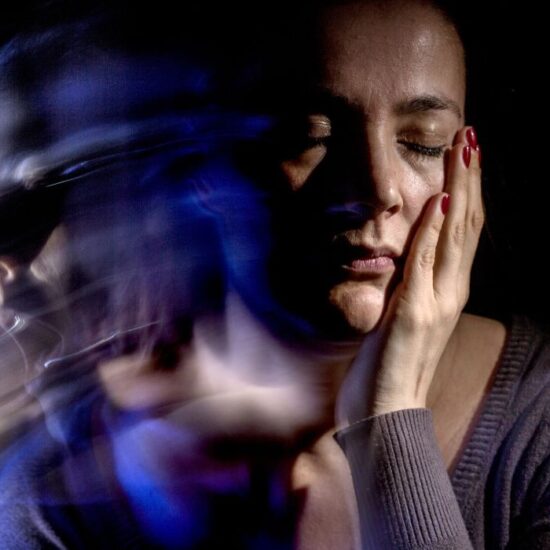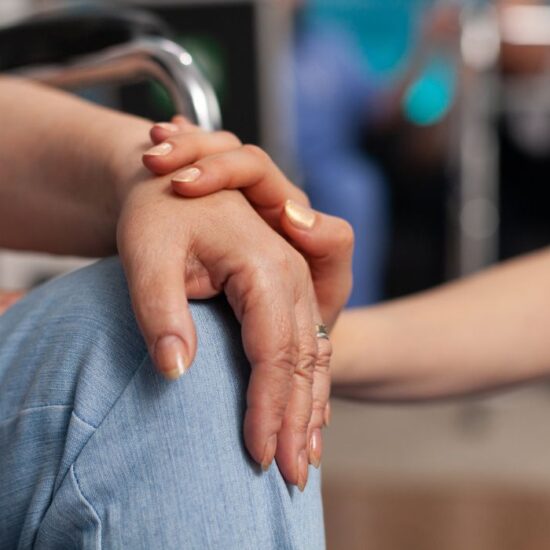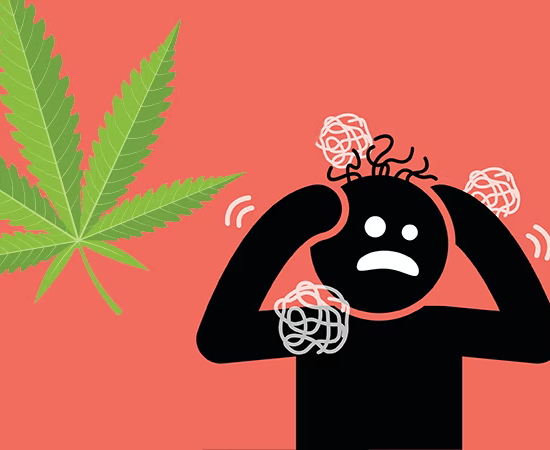Drug addiction is a big problem all over the world. It can mess with people’s bodies, minds, and relationships in a major way. But there is good news! If you or someone you know is struggling, drug rehab centers can offer a way out.
This guide is here to break down how rehab centers work. We’ll explore different types, what they do, how to choose the right one, and why aftercare is important to stay sober for good. Whether you’re dealing with addiction yourself or want to help a friend or family member, this guide will give you the info you need to start the journey to a drug-free life.
Understanding Drug Addiction
Drug addiction, also known as substance use disorder, is a chronic brain disease characterized by obsessive drug seeking, use, and cravings, despite harmful consequences. It affects individuals physically, psychologically, and socially, often provoking troubles in their personal relationships, work, and health.

- Biological Factors: Certain substances can hijack the brain’s reward system, leading to severe cravings and dependency.
- Psychological Factors: Stress, trauma, and co-occurring mental health disorders like depression or anxiety can contribute to substance abuse and addiction.
- Environmental Influences: Upbringing, socioeconomic status, access to drugs, and peer pressure can impact an individual’s likelihood of developing addiction.
Statistics and Prevalence
Statistics reveal the overall impact of drug addiction globally, with millions of people affected by substance use disorders each year. The majority of addiction varies across regions and demographics, with some substances more typically abused in certain populations.
Understanding the complex nature of drug addiction is important for developing compelling prevention, intervention, and treatment plans to address this public health issue.
The Role of Drug Rehab Centers
Drug rehab centers, also known as rehabilitation or treatment facilities, are specialized facilities organized to help individuals overcome substance abuse and addiction. Their primary objectives include providing a supportive environment for recovery, addressing the hidden issues contributing to addiction, and supplying individuals with the tools and skills necessary to strengthen sobriety.

- Comprehensive Services: Drug rehab centers offer a range of services customized to meet the distinctive needs of each individual. These may include
- Detoxification: Medical supervision and support to safely withdraw from addictive substances.
- Therapy: Individual and group therapy sessions to explore unnoticed issues, develop coping strategies, and learn healthier behaviors.
- Counseling: Behavioral counseling to address thought patterns, triggers, and cravings associated with addiction.
- Aftercare Programs: Continuing support and resources to help individuals transition back into their communities and maintain sobriety.
Drug rehab centers play a critical role in the recovery process by providing a structured and supportive environment where individuals can focus on healing and reconstructing their lives. Aspiring professional help from a drug rehab center presents countless benefits, including access to trained professionals, peer support, accountability, and evidence-based treatment modalities tailored to individual needs. By addressing addiction comprehensively, drug rehab centers entrust individuals to achieve lasting recovery and improve their overall quality of life.
Types of Drug Rehab Centers
Inpatient Rehab Centers
Inpatient drug rehab centers provide 24-hour care and accommodation for individuals requiring intensive treatment for substance abuse. Patients reside within the facility for the duration of their program, undergoing structured therapy, counseling, and medical supervision.
Outpatient Rehab Centers
Treatment While Living at Home, Outpatient rehab programs allow individuals to attend therapy sessions and treatment programs while continuing to live at home. This option provides flexibility for those who cannot commit to residential treatment or have responsibilities such as work or family obligations.
Luxury Rehab Centers
Upscale Facilities and Amenities, Luxury rehab centers offer high-end accommodations, luxurious amenities, and personalized services for individuals seeking a more comfortable and private treatment experience. These facilities may include spa services, gourmet meals, recreational activities, and private rooms.
Holistic Rehab Centers
Mind, Body, and Spirit Approach, Drug rehab centers focus on treating the whole person by addressing the physical, emotional, and spiritual aspects of addiction. Treatment modalities may include yoga, meditation, acupuncture, nutritional therapy, and other alternative therapies alongside traditional counseling and medical interventions.
Faith-Based Rehab Centers
Religious or Spiritually Focused Programs, Faith-based rehab centers integrate religious or spiritual principles into their treatment programs. These facilities may offer prayer sessions, spiritual counseling, scripture study, and religious ceremonies as part of the recovery process, catering to individuals seeking a faith-based approach to addiction treatment.
How Drug Rehab Centers Work
Drug rehab centers follow a structured treatment process designed to address the complex needs of individuals struggling with substance abuse disorders. Here’s a detailed overview of how drug rehab centers operate:
- Intake and Assessment: Individuals undergo a thorough assessment of their medical history, substance use patterns, and treatment goals upon admission.
- Detoxification (Detox): Medically supervised detox programs help manage withdrawal symptoms safely, ensuring a smoother transition into further treatment.
- Therapy and Counseling: Evidence-based modalities like CBT and DBT are central. Individual and group therapy sessions address underlying issues and foster peer support.
- Family Therapy: Involves loved ones to address family dynamics and promote healing.
- Medication-Assisted Treatment (MAT): Combines FDA-approved medications with therapy to manage cravings and prevent relapse.
- Aftercare and Continued Support: Includes outpatient counseling, sober living arrangements, and support groups to aid in maintaining sobriety post-treatment.
Factors to Consider When Choosing a Drug Rehab Center
When seeking treatment for substance abuse, selecting the right drug rehab center is a critical decision. Several factors should be taken into account to ensure that the chosen facility meets individual needs and maximizes the chances of successful recovery. Here are key considerations to keep in mind:
- Location and Environment: Assess whether the facility’s location, whether closer to home or in a secluded setting, aligns with your preferences for comfort and accessibility during treatment.
- Treatment Methods and Philosophy: Dive into the specific therapeutic modalities offered, such as cognitive-behavioral therapy (CBT), motivational interviewing, or holistic approaches. Ensure the center’s treatment philosophy resonates with your personal beliefs and goals for recovery.
- Accreditation and Licensing: Verify that the rehab center holds accreditation from reputable organizations like the Joint Commission or CARF, indicating adherence to rigorous quality and safety standards. Additionally, confirm that the facility is licensed by relevant state regulatory agencies.
- Financial Considerations: Understand the comprehensive costs associated with treatment, including assessment, detoxification, therapy sessions, accommodations, and any additional services. Inquire about insurance coverage and potential financial assistance options to mitigate out-of-pocket expenses.
- Facility Amenities and Services: Evaluate the range of amenities and supplementary services provided, such as comfortable living accommodations, nutritious meals, recreational activities, and specialized therapy programs. Additionally, consider whether the facility offers comprehensive aftercare planning and support to facilitate a successful transition back into daily life post-treatment.
By carefully evaluating these factors, individuals can make informed decisions when selecting a drug rehab center that best suits their needs and sets the foundation for lasting recovery.
Success Rates of Drug Rehab Centers
The question of “How often does drug rehab work?” is multifaceted, with success rates influenced by various factors and individual circumstances. Here’s an exploration of this question from a balanced perspective:
Factors Influencing Success
- Severity of Addiction: Impact of substance dependence and mental health disorders.
- Motivation for Recovery: Personal readiness and commitment.
- Ongoing Support Systems: Strong support networks and aftercare programs.
Research on Effectiveness
- Comprehensive Programs: Higher efficacy in achieving positive outcomes.
- Combination Therapies: Improve recovery rates and reduce relapse risk.
- Long-term Engagement: Better treatment retention and relapse prevention.
Balanced Perspective
- Complex Journey: Recovery varies based on individual circumstances.
- Opportunities for Growth: Setbacks seen as learning experiences.
- Unique Experiences: Success is defined by personal progress and goals.
While there is no definitive answer to the question of how often drug rehab works, success rates are influenced by a combination of factors, including treatment approach, individual motivation, and ongoing support. By addressing these factors comprehensively and tailoring treatment plans to meet individual needs, drug rehab centers can increase the likelihood of positive outcomes and support lasting recovery.
Aftercare and Continuing Support
Importance of Aftercare Programs
- Crucial for maintaining sobriety post-rehab.
- Reinforce learned skills and coping mechanisms, reducing relapse risk.
Types of Aftercare Services
- Sober Living Homes: Structured environment for early recovery.
- Support Groups: Peer support and accountability (e.g., AA, NA).
- Individual Therapy Sessions: Address ongoing issues and develop coping strategies.
Tips for Long-Term Sobriety
- Build a Strong Support Network: Surround yourself with positive influences.
- Attend Regular Meetings: Stay connected with the recovery community.
- Practice Self-Care: Prioritize physical, emotional, and mental well-being.
- Identify and Avoid Triggers: Recognize and manage potential triggers.
- Have a Relapse Prevention Plan: Proactive steps to prevent relapse.
Aftercare and continuing support are vital for sustaining recovery, and providing ongoing guidance and resources for a substance-free life.
FAQs
Que: How long is long-term drug therapy?
Ans: The duration of treatment may vary, ranging from 90-day rehabilitation stays to 6-month stays, 1-year programs, or in some cases, extending to a 2-year treatment period if necessary. Extended rehabilitation programs typically offer diverse levels of support, as an individual’s treatment requirements may evolve as they advance in their recovery journey.
Que: How long is long-term recovery?
Ans: An individual enters a state of long-term recovery or remission once they have ceased or regulated their substance use and experienced an enhancement in their overall quality of life for a minimum of five years. The initial phase of crisis management has concluded, efforts are underway to mend the harm caused by substance abuse, and endeavors to establish a “normal” lifestyle are in progress.
Que: What are the many pathways to recovery that may include according to SAMHSA?
Ans: The journey of recovery is deeply individualized, with pathways tailored to each person’s unique needs. These paths may encompass professional clinical interventions, medication-assisted treatments, familial and educational support systems, faith-centered practices, peer networks, and various other strategies designed to foster healing and progress.
Conclusion
In summary, battling drug addiction is a complex journey, but seeking help from rehab centers offers hope. Understanding addiction, treatment roles, and success factors are key. While success rates vary, tailored approaches and ongoing support enhance outcomes. Aftercare is crucial for sustained recovery. With a strong support network and proactive strategies, sobriety is achievable. Contact a reputable rehab center to start your journey today. You’re not alone – recovery is possible with support.










